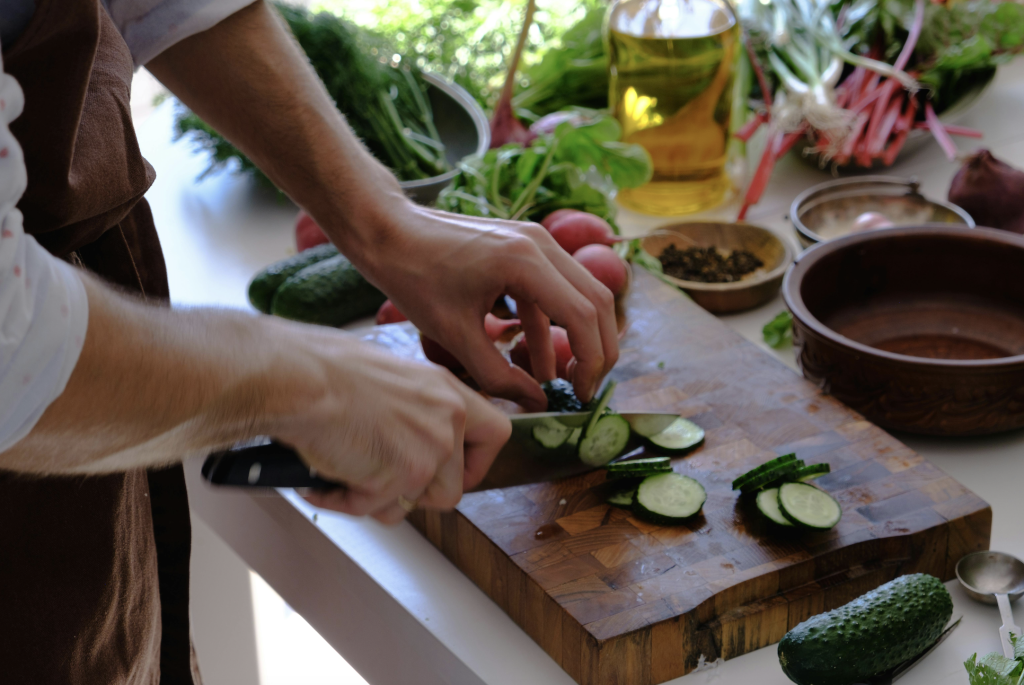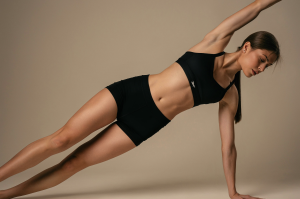
Your health and wellness are the foundation of a happy, fulfilling life. But with so much conflicting advice out there, it can feel overwhelming to know where to start. This guide breaks it down into actionable steps, helping you build sustainable habits for a healthier lifestyle. If you’re ready to turn your life around, this is your roadmap.
The Core Pillars of Health and Wellness:
1. Nutrition: Fuel Your Body for Optimal Health

Your diet plays a crucial role in your overall well-being. The right foods can boost energy, support mental clarity, and help maintain a healthy weight.
How to Eat for Health
Consider mindful eating:
Slow down and listen to your body’s hunger cues. Studies have shown that mindful eating can help prevent overeating, improve digestion, and foster a healthier relationship with food. (Harvard Health Publishing, 2011)
Focus on whole, unprocessed foods:
Fresh vegetables, fruits, lean proteins, and healthy fats are key to optimal nutrition. Research shows that consuming a diet rich in whole foods can reduce the risk of chronic diseases like heart disease and diabetes (Bansal et al., 2021). If you’re stuck for ideas, try the Mediterranean diet as that’s been proven to be one of the healthiest ways of eating. (Guasch-Ferré & Willet, 2021)
Balance macronutrients:
Ensure you’re getting a good mix of protein, fats, and carbohydrates. Studies indicate that a balanced diet helps balance your energy levels, improves hormone production, and enhances satiety due to the regulation of your metabolism. (Carreiro et al., 2016)
Stay hydrated:
Dehydration can lead to fatigue, headaches, and decreased cognitive function. Research suggests that proper hydration supports digestion, energy levels, and skin health. Drink 3,000 ml a day for men and 2,200 ml a day for women.
(Meinders et al., 2010) (Zhang et al., 2019)
🔗 Related Post: Why You Should Drink More Water Daily
2. Exercise: Move Your Body, Build Strength, and Improve Longevity

Regular movement enhances cardiovascular health, builds strength, and improves mental well-being. The key is to find a balanced workout routine that includes strength, cardio, and flexibility training.
Finding the Right Workout Routine
Strength training:
Helps tone muscles, boost metabolism, and slow the aging process. Research shows that adults lose 3% to 8% of muscle mass per decade after 30, but strength training helps preserve and rebuild muscle. It also improves bone density and prevents age-related muscle loss. (Westcott, 2012)
Cardio exercises:
Walking, jogging, cycling, or swimming to improve heart health. Cardiovascular exercise has been proven to lower blood pressure, reduce the risk of heart disease, and enhance endurance. (Pinckard et al., 2019)
Flexibility and mobility work:
Yoga and stretching prevent injuries and enhance recovery. Research highlights that regular stretching improves range of motion, reduces stiffness, and aids in muscle recovery. (Takeuchi et al., 2023)
🔗 Related Post: Can Cycle-Syncing Workouts Help You Reach Your Body Goals?
3. Sleep: The Overlooked Key to Better Health

Quality sleep is essential for overall health, influencing metabolism, cognitive function, and emotional well-being. To enhance your sleep quality, consider implementing the following evidence-based strategies:
Maintain a Consistent Sleep Schedule
Going to bed and waking up at the same time every day helps regulate your body’s internal clock, improving sleep quality. Research indicates that irregular sleep patterns can increase the risk of cardiovascular issues. (Chaput et al., 2020)
Create a Relaxing Bedtime Routine
Engaging in calming activities before bed, such as reading or taking a warm bath, signals to your body that it’s time to wind down, facilitating easier sleep onset. A soothing pre-sleep routine can enhance sleep quality and prevent insomnia.
(Markwald et al., 2018)
Limit Screen Time Before Bed
Exposure to blue light from devices can disrupt melatonin production, making it harder to fall asleep. Reducing screen time in the evening can improve sleep quality. (Arshad at al., 2021)
Optimise Your Sleep Environment
Ensure your bedroom is conducive to sleep by keeping it cool, dark, and quiet. Layering bedding and using blackout curtains can help create an optimal sleep environment. (Kang et al., 2024)
Be Mindful of Food and Drink Intake
Avoid large meals, caffeine, and alcohol close to bedtime, as they can interfere with sleep quality – aim for at least 3 hours before going to bed (Chung et al., 2020) . Certain foods rich in tryptophan, melatonin, and serotonin may promote better sleep. (Paredes at al., 2009)
By incorporating these practices into your daily routine, you can significantly improve your sleep quality, leading to better overall health and well-being.
4. Mental Well-being: Managing Stress and Cultivating a Positive Mindset

Your mental health is just as important as your physical health. Stress, anxiety, and negative thinking can take a toll on your body.
Simple Strategies to Improve Mental Well-being
Practice mindfulness and meditation:
Mindfulness and meditation can reduce stress, improve focus, and enhance emotional regulation. Research shows that mindfulness-based interventions significantly lower stress and anxiety. (Bartlett et al. 2021)
Journal daily to reflect and set intentions:
Writing down thoughts and goals helps process emotions and create a positive mindset. Studies suggest that journaling can decrease stress and improve overall mental clarity. (Smyth et al., 2018)
🔗 Related Post: Write Your Way to Success with Journaling
Surround yourself with supportive, positive influences:
Having a strong social support system is linked to lower stress levels and improved mental health. Studies highlight that meaningful relationships contribute to greater well-being. (Fowler & Christakis, 2008)
Engage in activities that bring joy:
Hobbies, creative pursuits, and social interactions boost dopamine and serotonin levels, improving overall happiness. Research confirms that engaging in enjoyable activities enhances mental well-being. (Mak et al., 2023)
Improve your confidence:
Confidence can be built through small, intentional habits. Wearing an outfit that makes you feel amazing, correcting your posture, and working on positive self-talk can significantly boost your confidence and presence. (Changing Faces, n.d.) (Gardner et al., 2012) (Ohio State University, 2009)
🔗 Related Post: Why Appearance Matters Backed by Both Research and Personal Experience
5. Lifestyle Habits: Small Changes, Big Impact

Your daily habits shape your health over time. Making small, consistent changes leads to long-term transformation. Even a 1% improvement each day compounds into significant progress over time. (James Clear, Atomic Habits)
Healthy Habits to Implement Today
Reduce alcohol and processed sugar intake:
Excessive sugar and alcohol consumption contribute to weight gain, inflammation, and chronic diseases. Cutting back can improve energy levels, mood, and metabolic health. (Ma et al., 2022) (Wang et al., 2010)
Spend time outdoors for natural vitamin D:
Sun exposure is essential for vitamin D production, which supports bone health, immunity, and mood regulation. Aim for at least 15–30 minutes of sunlight exposure daily. (Aranow, 2011)
Prioritise self-care routines that nourish your mind and body:
This can be as simple as reading, taking a relaxing bath, or practicing gratitude. Self-care has been linked to lower stress levels, improved mental health, and greater overall life satisfaction. (Sawyer, 2023)
Start small and build momentum:
Whether it’s drinking an extra glass of water, adding five minutes of exercise, or practicing deep breathing, these minor changes add up. Research shows that small, consistent improvements lead to long-term success. (BJ Fogg, Tiny Habits)
🔗 Related Post: How to Build a Strong Morning Routine Backed by Research
Start Your Health and Wellness Journey Today
Improving your health doesn’t have to be complicated. By focusing on nutrition, exercise, sleep, mental well-being, and daily habits, you can create a lifestyle that supports your best self.
What habits are you working on at the moment that have made a significant impact on your lift. Let us know in the comments!
Until next time,
Greta @How To Turn Your Life Around
🔗 Explore More: View All Health & Wellness Articles
Disclaimer:
The information provided on this blog is for general informational purposes only. The content is based on personal experience, research, and opinions and is not intended to replace professional advice. All readers should seek the advice of a qualified professional regarding any health, legal, financial, or other matters discussed on this blog before taking any action.
While we strive for accuracy, we cannot guarantee that all the information on this blog is 100% accurate, complete, or up-to-date. Occasionally, there may be links to third-party articles, websites, or products, and while we aim to share reliable resources, we cannot be held responsible for any errors, inaccuracies, or changes in the content or products they may offer. It is important to verify any information before making decisions based on it.
The views and opinions expressed on this blog are solely those of the author and do not necessarily represent the views of any organizations or companies the author is associated with. We are not liable for any damages arising from the use of this blog, including but not limited to any direct, indirect, incidental, or consequential damages.
By using this blog, you agree to hold harmless the author and website from any claims, damages, or losses that may result from using or relying on the content.
Additionally, there may be occasional errors in external links or references. We reserve the right to update or remove links and content as necessary, and we encourage readers to verify the details of any linked articles or sources.
References:
Aranow, C. (2011). Vitamin D and the immune system. Journal of Investigative Medicine, 59(6), 881–886. https://doi.org/10.231/JIM.0b013e31821b8755
Arshad, D., Joyia, U. M., Fatima, S., Khalid, N., Rishi, A. I., Abdul Rahim, N. U., Bukhari, S. F., Shairwani, G. K., & Salmaan, A. (2021). The adverse impact of excessive smartphone screen-time on sleep quality among young adults: A prospective cohort. Sleep Science, 14(4), 337–341. https://doi.org/10.5935/1984-0063.20200114
Bansal, S., Connolly, M., & Harder, T. (2021). Impact of a whole-foods, plant-based nutrition intervention on patients living with chronic disease in an underserved community. American Journal of Lifestyle Medicine, 16(3), 382–389. https://doi.org/10.1177/15598276211018159
Bartlett, L., Buscot, M.-J., Bindoff, A., Chambers, R., & Hassed, C. (2021). Mindfulness is associated with lower stress and higher work engagement in a large sample of MOOC participants. Frontiers in Psychology, 12, 724126. https://doi.org/10.3389/fpsyg.2021.724126
Carreiro, A. L., Dhillon, J., Gordon, S., Jacobs, A. G., Higgins, K. A., McArthur, B. M., Redan, B. W., Rivera, R. L., Schmidt, L. R., & Mattes, R. D. (2016). The macronutrients, appetite, and energy intake. Annual Review of Nutrition, 36, 73–103. https://doi.org/10.1146/annurev-nutr-121415-112624
Changing Faces. (n.d.). The effects of physical appearance on self-esteem when you have a visible difference. Changing Faces. https://www.changingfaces.org.uk/advice-guidance/confidence-self-esteem/appearance-self-esteem/
Chaput, J.-P., Dutil, C., Featherstone, R., Ross, R., Giangregorio, L., Saunders, T. J., Janssen, I., Poitras, V. J., Kho, M. E., Ross-White, A., Zankar, S., & Carrier, J. (2020). Sleep timing, sleep consistency, and health in adults: A systematic review. Applied Physiology, Nutrition, and Metabolism, 45(10 Suppl. 2), S232–S247. https://doi.org/10.1139/apnm-2020-0032
Chung, N., Bin, Y. S., Cistulli, P. A., & Chow, C. M. (2020). Does the proximity of meals to bedtime influence the sleep of young adults? A cross-sectional survey of university students. International Journal of Environmental Research and Public Health, 17(8), 2677. https://doi.org/10.3390/ijerph17082677
Clear, J. (n.d.). Atomic habits. https://jamesclear.com/atomic-habits
Fogg, B. J. (n.d.). Tiny habits: The small changes that change everything. https://tinyhabits.com/
Fowler, J. H., & Christakis, N. A. (2008). Dynamic spread of happiness in a large social network: Longitudinal analysis over 20 years in the Framingham Heart Study. BMJ, 337, a2338. https://doi.org/10.1136/bmj.a2338
Gardner, B., Lally, P., & Wardle, J. (2012). Making health habitual: The psychology of ‘habit-formation’ and general practice. The British Journal of General Practice, 62(605), 664–666. https://doi.org/10.3399/bjgp12X659466
Guasch-Ferré, M., & Willett, W. C. (2021). The Mediterranean diet and health: A comprehensive overview. Journal of Internal Medicine. https://doi.org/10.1111/joim.13333
Harvard Health Publishing. (2011, February 1). Mindful eating. Harvard Health. https://www.health.harvard.edu/staying-healthy/mindful-eating
Kang, M., Yan, Y., Zhang, H., Guo, C., Fan, X., Sekhar, C., Lian, Z., Wargocki, P., & Lan, L. (2024). Associations between bedroom environment and sleep quality when sleeping less or more than 6h: A cross-sectional study during summer. Building and Environment, 257, 111531. https://doi.org/10.1016/j.buildenv.2024.111531
Ma, X., Nan, F., Liang, H., Shu, P., Fan, X., Song, X., Hou, Y., & Zhang, D. (2022). Excessive intake of sugar: An accomplice of inflammation. Frontiers in Immunology, 13, 988481. https://doi.org/10.3389/fimmu.2022.988481
Mak, H. W., Noguchi, T., Bone, J. K., Wels, J., Gao, Q., Kondo, K., Saito, T., & Fancourt, D. (2023). Hobby engagement and mental wellbeing among people aged 65 years and older in 16 countries. Nature Medicine, 29(9), 2233–2240. https://doi.org/10.1038/s41591-023-02506-1
Markwald, R. R., Iftikhar, I., & Youngstedt, S. D. (2018). Behavioral strategies, including exercise, for addressing insomnia. ACSM’s Health & Fitness Journal, 22(2), 23–29. https://doi.org/10.1249/FIT.0000000000000375
Meinders, A.-J., & Meinders, A. E. (2010). How much water do we really need to drink? Nederlands Tijdschrift voor Geneeskunde, 154, A1757. PMID: 20356431. https://pubmed.ncbi.nlm.nih.gov/20356431/#:~:text=The%20recommended%20total%20daily%20fluid,women%20is%20more%20than%20adequate
Ohio State University. (2009, October 5). Body posture affects confidence in your own thoughts, study finds. ScienceDaily. https://www.sciencedaily.com/releases/2009/10/091005152332.htm
Paredes, S. D., Marchena, A. M., Bejarano, I., Espino, J., Barriga, C., Rial, R. V., Reiter, R. J., & Rodríguez, A. B. (2009). Melatonin and tryptophan affect the activity-rest rhythm, core and peripheral temperatures, and interleukin levels in the ringdove: Changes with age. The Journals of Gerontology Series A: Biological Sciences and Medical Sciences, 64A(3), 340–350. https://doi.org/10.1093/gerona/gln054
Pinckard, K., Baskin, K. K., & Stanford, K. I. (2019). Effects of exercise to improve cardiovascular health. Frontiers in Cardiovascular Medicine, 6, 69. https://doi.org/10.3389/fcvm.2019.00069
Sawyer, H. (2023). Mindfulness: Strategies to implement targeted self-care. Journal of Interprofessional Education & Practice, 31, 100614. https://doi.org/10.1016/j.xjep.2023.100614
Smyth, J. M., Johnson, J. A., Auer, B. J., Lehman, E., Talamo, G., & Sciamanna, C. N. (2018). Online positive affect journaling in the improvement of mental distress and well-being in general medical patients with elevated anxiety symptoms: A preliminary randomized controlled trial. JMIR Mental Health, 5(4), e11290. https://doi.org/10.2196/11290
Takeuchi, K., Nakamura, M., Konrad, A., & Mizuno, T. (2023). Long-term static stretching can decrease muscle stiffness: A systematic review and meta-analysis. Scandinavian Journal of Medicine & Science in Sports, 33(8), 1294–1306. https://doi.org/10.1111/sms.14402
Wang, H. J., Zakhari, S., & Jung, M. K. (2010). Alcohol, inflammation, and gut-liver-brain interactions in tissue damage and disease development. World Journal of Gastroenterology, 16(11), 1304–1313. https://doi.org/10.3748/wjg.v16.i11.1304
Westcott, W. L. (2012). Resistance training is medicine: Effects of strength training on health. Current Sports Medicine Reports, 11(4), 209–216. https://doi.org/10.1249/JSR.0b013e31825dabb8
Zhang, N., Du, S. M., Zhang, J. F., & Ma, G. S. (2019). Effects of dehydration and rehydration on cognitive performance and mood among male college students in Cangzhou, China: A self-controlled trial. International Journal of Environmental Research and Public Health, 16(11), 1891. https://doi.org/10.3390/ijerph16111891